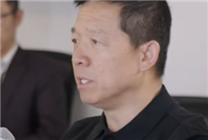Controversy Surrounding Lu Xun’s Wall Painting: Weibo Account Blocked for Promoting Nicotine Products
On August 31, it was reported that Ms. Sun, the artist behind the controversial wall painting “Lu Xun’s Smoke” at the Lu Xun Memorial Hall in Shaoxing, faced significant backlash after her social media account was blocked on Weibo. This action followed allegations that she was promoting nicotine bags under the guise of tobacco control.
Background of the Incident
The official Weibo account of the Community Observer confirmed that Ms. Sun’s account, under the name @non-smoker rights strategist Ada, was closed due to repeated violations related to the promotion of nicotine products. Legal interpretations indicate that nicotine bags lack approval for production and sales in China. Moreover, these products do not conform to the formal classification of tobacco as outlined by existing laws, rendering their marketing and distribution potentially illegal.
Ms. Sun’s Apology and Retracted Remarks
In the wake of the controversy, Ms. Sun attended to public sentiment by issuing a lengthy apology on Weibo on the evening of August 28. She acknowledged her actions, stating that the painting had attracted numerous visitors who would light cigarettes in front of it, exposing bystanders—including children—to second-hand smoke. She expressed her hope that such behavior would cease, indicating a desire for a healthier public environment around the artwork.
However, by the afternoon of August 30, Ms. Sun retracted her previous apology, asserting that her comments had been misinterpreted, which led to her becoming a target of widespread criticism.
Official Reactions from Memorial Hall
In response to the uproar, the WeChat account for the Shaoxing Lu Xun Memorial Hall clarified their commitment to preserving the legacy of Lu Xun. They emphasized that they have always respected his history and artistic contributions, refusing to alter the established representation of his hometown for tourist appeal.
Broader Implications
The incident reflects ongoing tensions surrounding public health, artistic expression, and social media policy in China. As the debate over nicotine product promotion intensifies, this case serves as a cautionary tale about the fine line between advocacy and compliance with regulatory standards.
Conclusion
The situation surrounding "Lu Xun’s Smoke" underscores the complexities faced by artists and public figures in navigating societal norms and legal restrictions. It highlights the importance of responsible messaging, particularly when public health is at stake. As communities respond to these challenges, the implications for both artistic freedom and public health advocacy will continue to unfold.
Through the lens of this controversy, it becomes evident that addressing the issues of nicotine use and its societal impact requires a careful balance between expression and regulation.






